

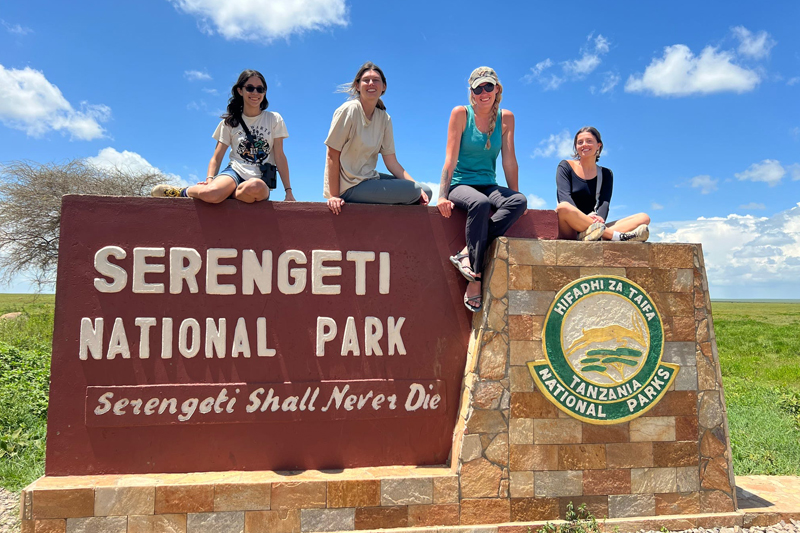
Conservation beyond the classroom
Photos courtesy of Alex Cassu and Chloe Schaffel February 23, 2024
UD students embark on Tanzania study abroad, experience wildlife conservation and Indigenous cultures first-hand
During Winter Session, classrooms extended beyond the University of Delaware’s Newark campus when Blue Hens embarked on a one-of-a-kind study abroad adventure to northern Tanzania. Led by Jake Bowman, professor and chair of the Department of Entomology and Wildlife Ecology, UD students lived in the heart of Tanzania and gained a hands-on wildlife conservation education that transformed them into passionate advocates.
Bowman began taking a group of adventurous undergraduates to Tanzania for a deep dive into African wildlife and culture in 2004 and led his 11th group this past January. Speak to any of the UD wildlife ecology and conservation majors who have participated in the program, and you’ll quickly understand these courses’ immense popularity.
In Conservation of African Wildlife (ENWC452) and Community-Based Conservation (ENWC453), students go up-close-and-personal with native African wildlife and the Indigenous groups that inhabit northern Tanzania, including the Maasai, Iraqw and Hadza.
“We went on safari every day,” said Alex Cassu, a senior wildlife ecology and conservation major. “We got to see all of the animals in real time and observe all their behaviors.”
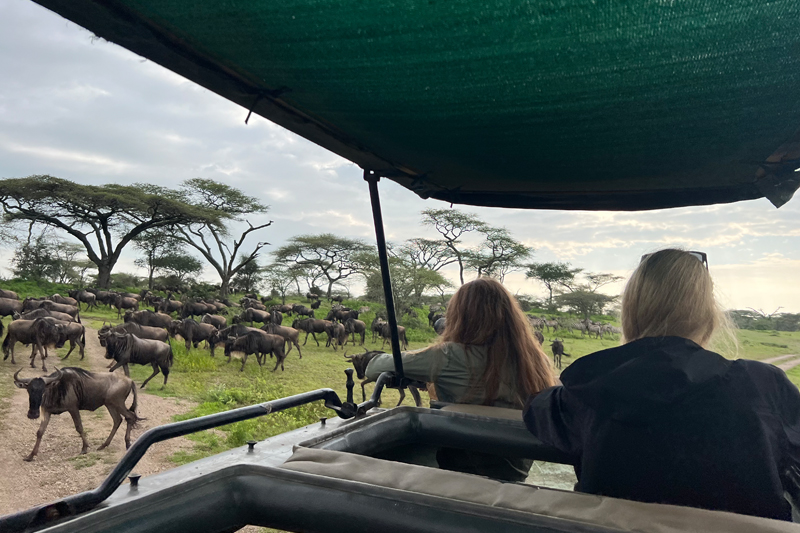
“We were surrounded by wildlife at all times,” said Brenden Scranton, a junior wildlife ecology and conservation major. “At night you could hear a lion off in the distance and the hyenas talking to each other. One night a honey badger even tried to break into one of the tents.”
Not only were students getting such an intensive education on African wildlife, they were alongside peers that shared a similar passion for wildlife and conservation.
“Most people who go on safari are just there to see the big mammals,” said Chloe Schaffel, a senior wildlife ecology and conservation major. “But what I enjoyed most was, between those big mammals, everyone that was there had such a passion for even the smaller animals.”
“We went out on hikes to look for birds and tried to count how many different species we could see,” added Jacob Ukropec, a senior environmental science major. “It was an amazing time.”
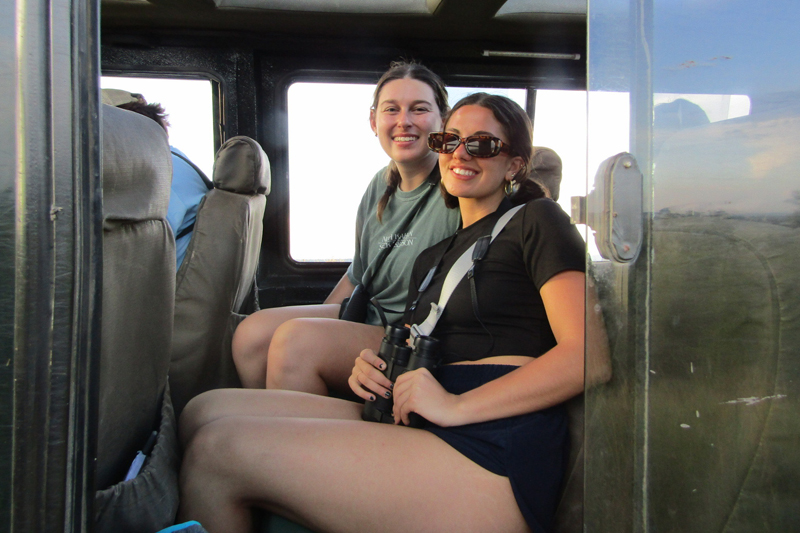
The program allows students to fully immerse themselves in Tanzanian wildlife, creating a completely different learning experience than what they could get sitting in a classroom.
“It would be hard to teach those courses without experiencing these things firsthand,” Bowman said. “It’s easy to talk about some of these things in the classroom, but actually going out there and experiencing it has much more of an impact than just talking about it in class.”
While students did complete course assignments, the focus was on how students could get the most experiential learning.
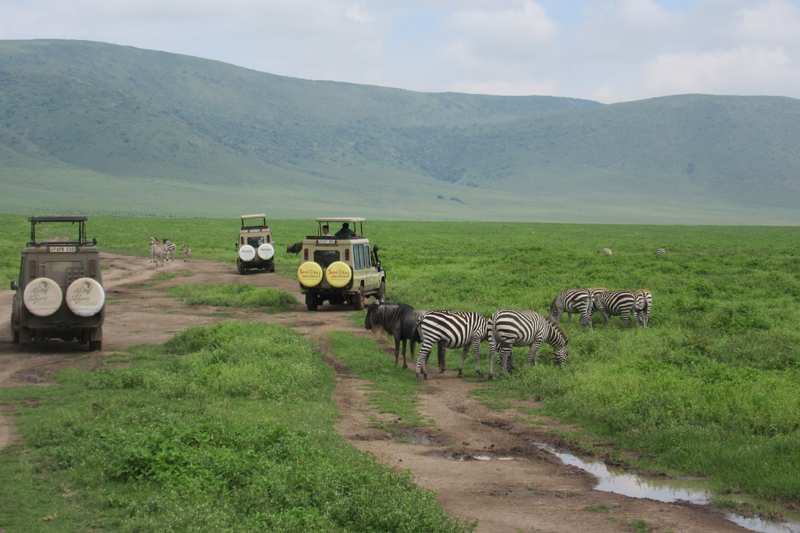
“I’m more of a hands-on type of learner, and Dr. Bowman gives everybody the opportunity to be very hands-on and experience things for themselves,” Ukropec said.
“I was never stressed about getting work done,” Cassu added. “Dr. Bowman really just wanted us to be in it and live and experience it all.”
A primary course objective is teaching these future conservation professionals how they can make wildlife conservation valuable to the people living alongside it. For wildlife conservation to truly work, local people must live harmoniously with the environment around them. Many of these Tanzanian groups developed techniques to effectively use the environment while also allowing it to thrive. According to Bowman, the Maasai preserve grazing areas so that their cattle will have somewhere to feed during a dry season. They keep these lands under protection, so they end up being areas where wildlife can really thrive.
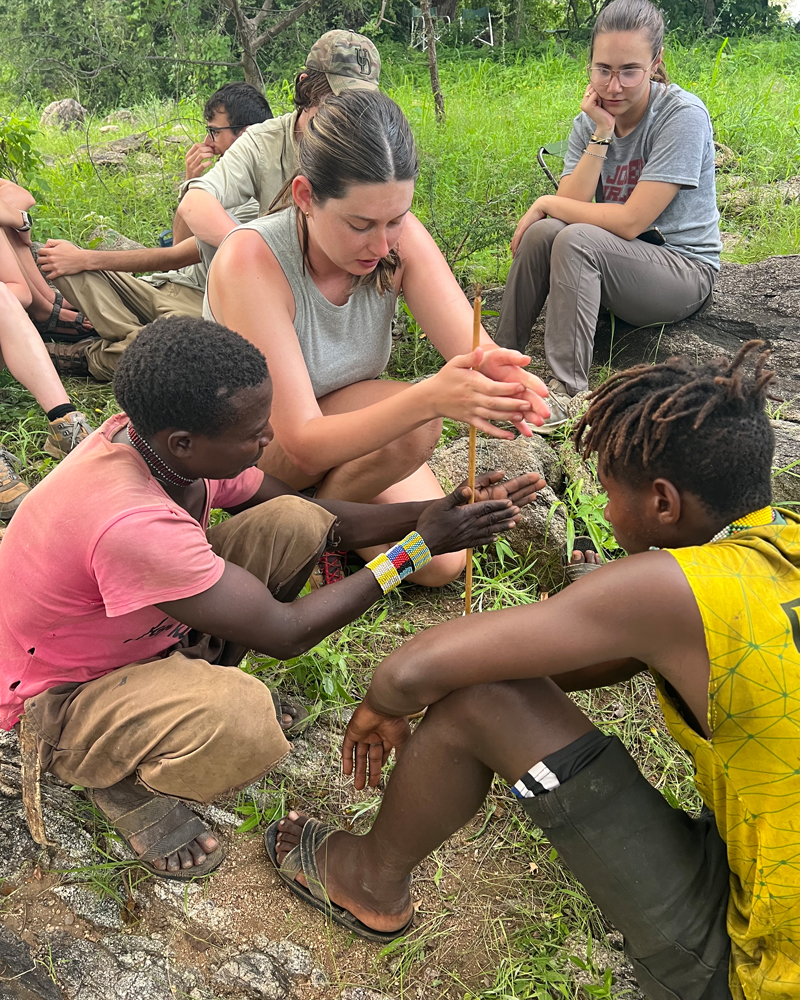
“Something that was really interesting was that the Massai processed a goat in front of us,” Ukropec said. “They showed us how they use the entire animal; it definitely showed me how much we waste [back at home].”
Other Indigenous groups in the area found ways to work with the wildlife while hunting or foraging for food.
“In the Hadza tribe, the men make bows and arrows to hunt wildlife that crosses their path,” Cassu said. “They also hunt for honey using honey guides, which are birds that they communicate with and the birds will lead them to the bees.”
Giving students these new experiences commonly changes their perspective on how different places conserve wildlife.
“After this course, students are gonna think about conservation in a different way, and they’ll bring that mindset with them when looking at conservation issues here at home,” Bowman said.
“The tribes all have different methods of how they can conserve wildlife and land, while still living in it,” Cassu noted. “The balance they had between them and the wildlife was definitely cool, and I learned tactics that I can bring into my future career.”
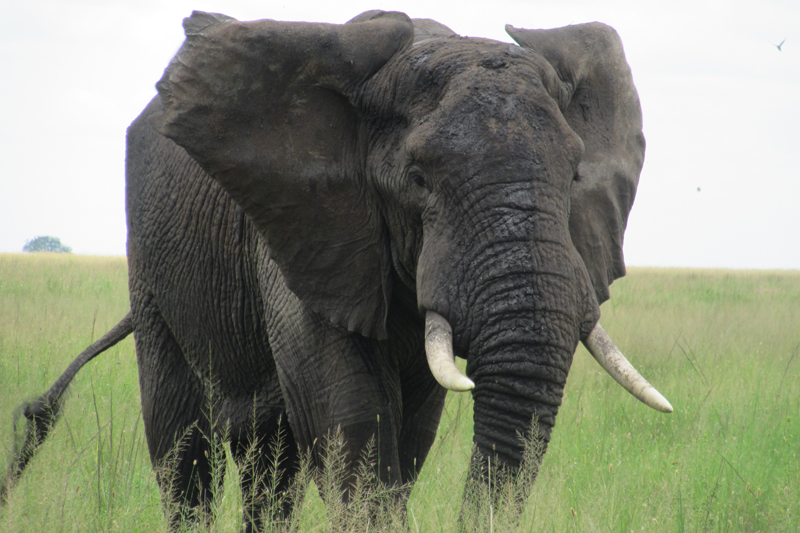
Typically many field jobs in wildlife ecology and conservation require willingness to wake up early, be physically active and move with wildlife. In addition, knowledge of different conservation methods around the world can be crucial for students looking for jobs in the wildlife conservation sector.
“It’s so easy to be so comfortable at home and think you couldn’t go live somewhere and do research there,” Schaffel said. “But putting myself into an environment where it was so physically uncomfortable definitely was a big push in my career in wildlife ecology.”
Students are already implementing what they learned into their daily lives and future careers. This upcoming summer Scranton lined up an internship in Oregon focused on wildlife and rangelands; he’s contemplating how he can apply what he’s learned in Tanzania to his internship there.
“It’ll be good for me to come in with a bit more background dealing with the cattle grazing, like the water requirements needed,” Scranton said. “I’m excited to see if I can help the Forest Service implement some of the conservation practices I learned in Tanzania.”
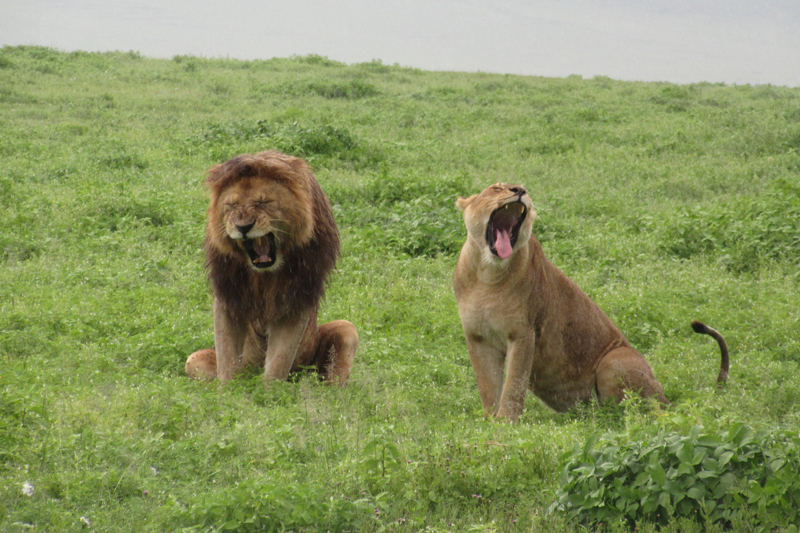
While developing new and innovative approaches to conservation is important, it’s also important that people in the wildlife profession understand the lives of the different people living within the environment.
“The Hadza really integrated us in with them,” Uktropec said. “They taught us a bunch of different ways that they live; we even went hunting with them.”
“[The Hadza] were very sharing and were so willing to welcome us into their lifestyle,” Cassu said. “Even though I am in wildlife ecology, experiencing the culture is really the main thing that will stick with me.”
After living in Tanzania alongside wildlife and native people, these Blue Hens returned to Newark for their spring semester. But they return forever changed with a more holistic view on how communities interact with wildlife and how large of an impact a wildlife professional can have.
“We were able to go deeper than what typical tourists can do,” Cassu said. “Not only did I learn so much about the wildlife, I gained a higher appreciation for different cultures.”
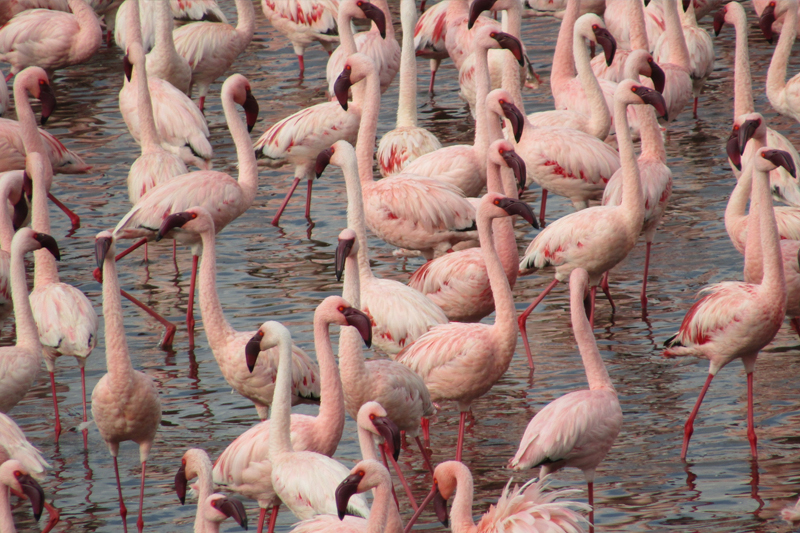
Contact Us
Have a UDaily story idea?
Contact us at ocm@udel.edu
Members of the press
Contact us at 302-831-NEWS or visit the Media Relations website

